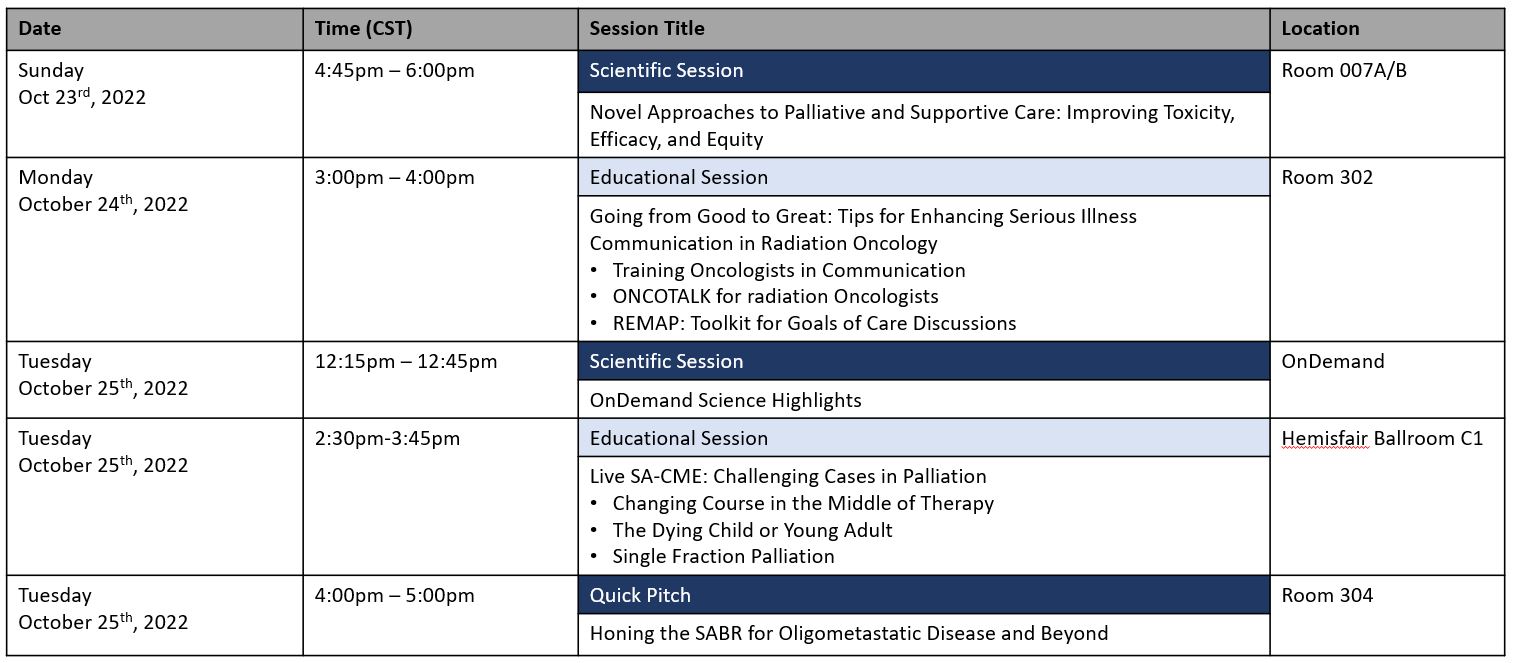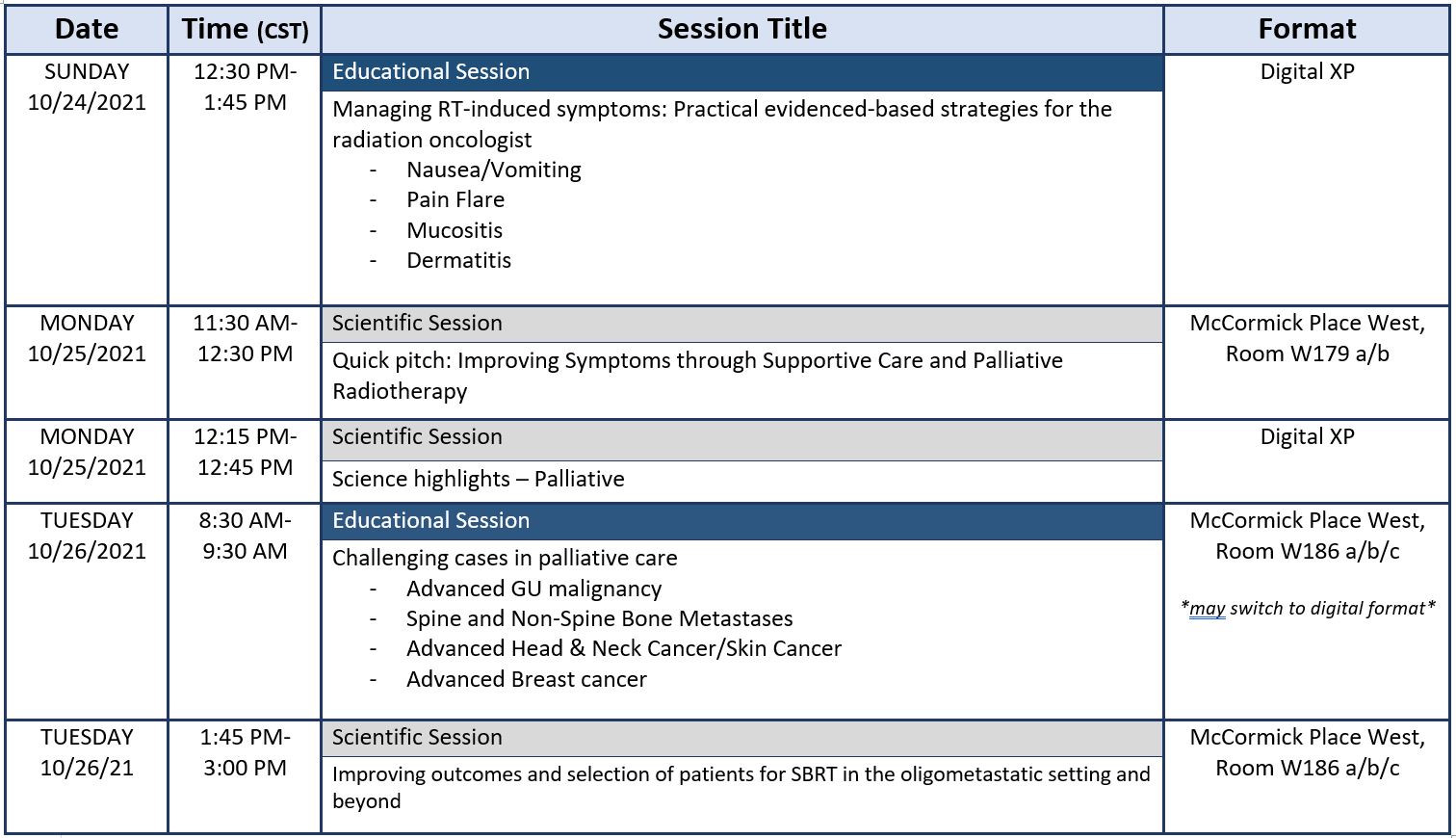2023 ASTRO Educational Session – Accepting Submissions
ASTRO is accepting educational session proposal submissions for next year’s meeting through Monday 1/9/2023. For those who plan to submit, keep in mind that ASTRO’s theme for 2023 is “Pay It Forward – Partnering with Our Patients.” The link to the submission site will be in an email sent to those on the SPRO mailing list.
SAVE THE DATE: SPRO’s 9th Annual Meeting
Join us in San Antonio for SPRO’s 9th Annual Meeting!
Date: Sunday, October 23rd
Time: 6-9 PM Central
Location: Iron Cactus, 200 River Walk, Suite 100
Cost: $75
Please purchase tickets at: https://society-palliative-radiation-oncology.square.site/ Advance purchase is required. We are also accepting tax-deductible donations.
We look forward to seeing you there!
30-Day Mortality after Palliative Radiotherapy
Palliative radiotherapy (PRT) is a well-established treatment option for the palliation of symptoms related to advanced cancer. Common indications for PRT include pain and fracture prophylaxis from bone metastases, hemostasis, and neurological symptoms from spinal cord compression and/or brain metastases. Due to possible short term side effects and the fact that radiation often requires several weeks for full effect, many have cautioned its use in patients with a mortality estimate of < 30 days.
Recently a large meta-analysis was published in the Green Journal which included 42 studies and 88,516 patients with advanced cancer who received PRT (Kutzko et al. Radiother Oncol. 2022). The primary endpoint was to determine the proportion of patients with advanced cancer who received PRT within 30 days of death. In this meta-analysis, it was reported that 16% (95% CI 14% to 18%) of patients with advanced cancer receiving PRT died within 30 days of treatment. There was a higher risk of mortality within 30 days for patients with multiple treatment sites, particular primary tumor sites (melanoma, hepatobiliary, and mesothelioma), inpatient status at time of consult, ECOG performance status of 3-4, liver metastases, and patients treated in the United States.
Untimely deaths and unexpected rapid deterioration at end of life is unavoidable, however, it is imperative that clinicians try to minimize the use of unnecessary treatments and their associated toxicities if a patient is less likely to derive a meaningful benefit. This meta-analysis sets a new benchmark global quality metric for radiation oncology practice audits. Radiation oncology departments worldwide can now compare their own rate of PRT within the 30-day mortality window to this global benchmark. Departments that exceed this 30-day mortality rate after PRT should evaluate why this is so and formulate a plan to improve their delivery of patient centered care.
– Jordan Hill, MD and Andrew Bruggeman, MD






